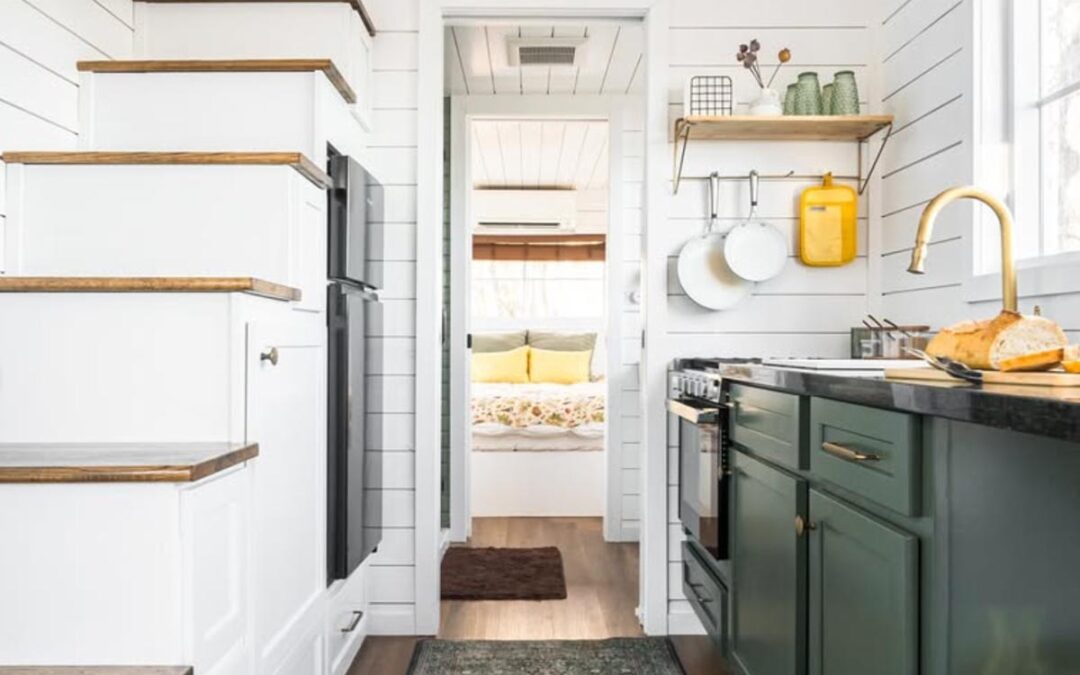In the world of downsized living and mobile lifestyles, tiny homes and campers have emerged as two popular choices for those seeking freedom, flexibility, and simplicity. While they share similarities, they serve different purposes and come with unique advantages and challenges. If you’re considering a move toward a more minimalist lifestyle, understanding the key differences between tiny homes and campers can help you decide which one is right for you.
1. Purpose and Lifestyle
- Tiny Homes: Designed to provide a permanent or semi-permanent living solution, tiny homes often emphasize comfort and customization. They are ideal for individuals or families looking for a long-term residence with a small footprint while still enjoying the benefits of a traditional home.
- Campers: Built for mobility and travel, campers (including RVs, travel trailers, and motorhomes) cater to those who enjoy frequent adventures, road trips, or seasonal living. They are optimized for efficiency, portability, and ease of movement rather than long-term residential comfort.
2. Construction and Design
- Tiny Homes: Typically constructed with high-quality materials similar to traditional houses, tiny homes often include full-sized appliances, solid insulation, and custom finishes. Many are built on trailers but are designed to stay in one place for extended periods.
- Campers: Built for lightweight travel, campers use lightweight materials such as aluminum, fiberglass, and composite panels. Their interiors prioritize compact and multi-functional designs to maximize space, often featuring built-in furniture and convertible areas.
3. Mobility and Transportation
- Tiny Homes: While some tiny homes are built on wheels, they are not meant for frequent travel. They require a heavy-duty trailer and a powerful towing vehicle to move, and frequent relocation can lead to structural wear.
- Campers: Designed for easy transport, campers are equipped with aerodynamic features and built-in stabilization systems. They can be towed by various vehicles (depending on size) or be self-propelled (in the case of motorhomes), making them ideal for regular travel.
4. Legal and Zoning Considerations
- Tiny Homes: Depending on local laws, tiny homes may face zoning restrictions, building codes, and land use regulations. Some areas require them to be placed on permanent foundations, while others may allow tiny homes on wheels to be classified as RVs.
- Campers: Since they are classified as recreational vehicles, campers have more flexibility in where they can be parked. Many cities and towns allow RV parking in designated areas or campgrounds, but long-term residential use may have restrictions.
5. Cost and Maintenance
- Tiny Homes: The cost of a tiny home varies widely based on size, materials, and customization but often ranges from $30,000 to $150,000. Maintenance is similar to a traditional home, with occasional repairs needed for plumbing, electrical, and insulation.
- Campers: Typically more affordable upfront, campers can range from $10,000 to $100,000 depending on the type and features. However, they require frequent maintenance for mechanical parts, water systems, and weatherproofing, especially if used regularly for travel.
6. Comfort and Amenities
- Tiny Homes: Offer more insulation, stability, and home-like comforts, making them better suited for year-round living. They often feature full kitchens, bathrooms, and designated sleeping areas.
- Campers: Designed for temporary stays, campers often have compact layouts with smaller kitchens, bathrooms, and sleeping areas. Heating and cooling systems are less efficient compared to tiny homes, which can affect comfort in extreme weather.
Conclusion
Both tiny homes and campers offer unique benefits, but the best choice depends on your lifestyle goals. If you want a comfortable, permanent small home, a tiny home may be the best fit. If you crave adventure and travel, a camper might be the ideal choice. By weighing factors like mobility, budget, and long-term plans, you can find the right option for your needs.
Would you choose a tiny home or a camper? Let us know in the comments!

